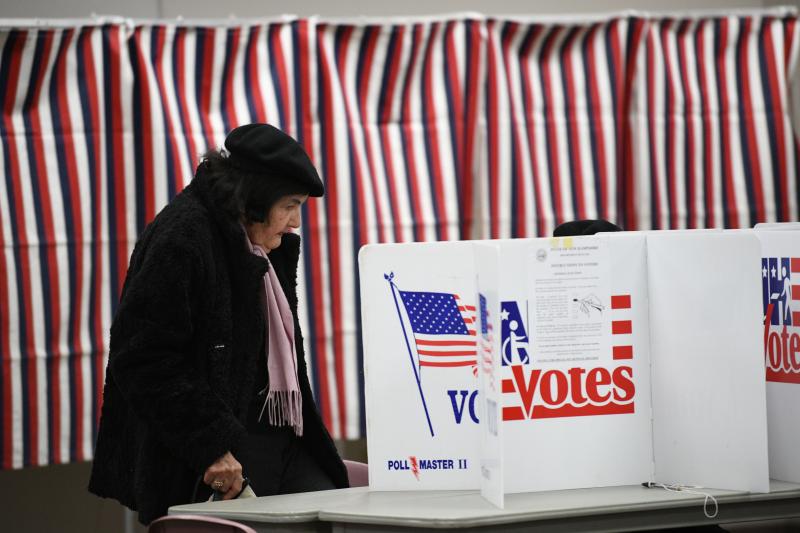Democratic candidates differ on how to deal with China
- By Mitchell Blatt
 0 Comment(s)
0 Comment(s) Print
Print E-mail China.org.cn, March 1, 2020
E-mail China.org.cn, March 1, 2020

Disagreements on how to deal with China among the candidates for the Democratic nomination for the presidential election have become evident during their past two debates, as the campaign heats up.
Former Vice President Joe Biden and former South Bend Mayor Pete Buttigieg are both advocating "getting tough" with China, while former New York City Mayor Mike Bloomberg suggested cooperation would be a more effective attitude on key issues.
One such issue is that the U.S. and the rest of the world must cooperate on climate change. "You will never solve this problem without China and India, Western Europe, and America," Bloomberg said during the Nevada debate.
By contrast, Biden criticized China for importing coal from Mongolia and threatened to impose tariffs on China if it does not listen to the United States. Buttigieg also threatened to use some kind of force against China.
"I'm a little skeptical of the idea that convincing is going to do the trick when it comes to working with China. America has repeatedly overestimated our ability to shape Chinese ambitions," Buttigieg said, before adding, "But what we can do is ensure that we use the hard tools to enforce what has to happen."
China is a rising power. Of course, it will pursue its own path with its own national interests in mind. The idea that America should "shape Chinese ambitions" is, and has been, the height of foreign policy arrogance.
There are shared interests and things that can be achieved, fully or partially, by diplomacy. Bloomberg was right to mention climate change as an example. But the U.S. should not take Chinese submission as its goal. If the U.S. has absolutist goals, then its policies will end in failure.
Threatening to use "hard tools" to "enforce what has to happen" on an issue such as climate change, which involves energy sovereignty, is an example of an arrogant policy that will end in failure.
The claim that China is the biggest producer of carbon is also misleading. China has a much larger population than any country but India, after all, so it does not make sense to compare countries with different populations and different situations in absolute terms.
If you look at carbon emissions per capita of population, China is actually not very high on the list. The activities of Chinese commerce and lifestyle within the country released 8.0 metric tons of CO2 per capita in 2018, while the United States released 16.1 tons per capita.
Chinese carbon emissions also include those of factories that produce goods for export – mostly to the United States and Western countries. The products Americans purchase that are manufactured abroad also add to the world's carbon footprint, and, because the U.S. has a trade deficit, they are importing more than they are exporting. If the price of carbon were to increase, then Americans would end up paying for it in higher prices of those goods.
Furthermore, China is already taking actions to limit its carbon footprint. It recognizes the need to limit pollution for its own good as well as that of the world as a whole. Particulate matter has been a big problem; generating more energy from clean power sources kills two birds with one stone – three birds if you also include job creation in the solar and wind sectors.
According to a chart produced by the Washington-based think tank CSIS, Chinese consumption of coal peaked in 2013 and has decreased since then. And the proportion coal makes up of China's total energy consumption has decreased from 76 percent in 1990 to 59 percent today; its coal-burning plants have been modernized to burn more efficiently.
Fifty-nine percent is still higher than many countries, and China continues to seek ways to create further reductions. However, part of the reason why it is relatively high is because China does not have abundant access to other natural fossil fuel resources as is the case with other countries. The United States is one of the largest oil exporters, for example, while China must import. It is just geographic luck that determines what is left under the ground.
Bloomberg seems to recognize China's position. He said, "In all fairness, China has slowed down."
Those three candidates went at it about China again in the next debate in South Carolina, maintaining the same positions. Overall, Bloomberg, who was attacked by Sen. Elizabeth Warren for doing business with China, had the most moderate and diplomatic position towards that country.
Biden sounded tough, but he has had experience with foreign policy both as a senator and a vice president. He understands that one can fiercely advocate national interests while also being pragmatic at the negotiating table.
Buttigieg would be the wild card. He has no experience with foreign policy (or national policy). He has only served as mayor of a small town of 100,000 people. Were his aggressive words just designed to pull in votes? Does he really believe in stepping up the intensity of America's outlook towards China?
We will only be able to know if he does get elected. Do we want to find out?
Mitchell Blatt is a columnist with China.org.cn. For more information please visit:
http://www.china.org.cn/opinion/MitchellBlatt.htm
Opinion articles reflect the views of their authors, not necessarily those of China.org.cn.
If you would like to contribute, please contact us at opinion@china.org.cn.






Go to Forum >>0 Comment(s)